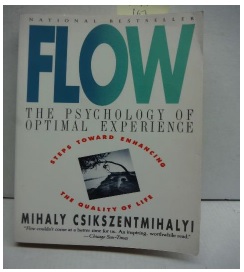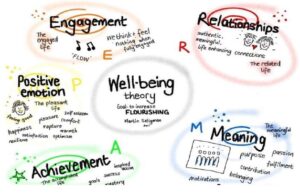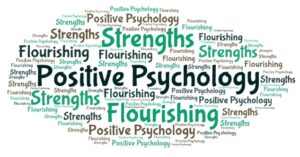The Role Of Positive Psychology In Peak Performance

Introduction:
Positive psychology is a relatively new field of study that focuses on the factors that contribute to human well-being and flourishing. Rather than solely looking at what is wrong with people and how to fix it, positive psychology aims to identify the strengths and positive aspects of individuals and how to enhance them.

One area where positive psychology has gained a lot of attention is in the field of peak performance. Peak performance is the state where individuals perform at their highest level, achieving optimal outcomes in their chosen field. Positive psychology can play a critical role in helping individuals achieve peak performance by cultivating positive emotions, building resilience, and developing a sense of purpose and meaning in their work.
As a police officer, I have always believed in the power of positive psychology.
Throughout my various postings, I have deployed this strategy to scale my performance and undertake several community policing initiatives. But it was during my tenure as ADGP Armed Police in 2021 that I had the most outstanding experience with positive psychology.
The COVID-19 pandemic had taken a significant toll on individuals and families across the country. As a police officer and a human being, I was appalled at the suffering that people were facing. I knew that it was my duty to protect and serve my community, but I wanted to do more than just that. I wanted to alleviate their suffering, to offer them a glimmer of hope in these dark times.
That’s when I decided to employ positive psychology to uplift those around me. I launched the www.letsfightcorona.com initiative, a platform that aimed to alleviate people’s suffering during the ongoing pandemic by rendering a bouquet of humanitarian services. With the help of more than 10,000 personnel under me, police vehicles, and kitchens, we were able to provide essential supplies and resources to those in need.

The initiative went above and beyond our call of duty. We became the conduits to facilitate the transfer of resources from the haves to the have-nots. There were a lot of volunteers who had resources such as money and supplies, but they were unable to distribute them. We stepped up to the challenge, and our efforts paid off. In just 40 days, we were able to distribute relief worth more than Rs 50 lakhs.
But I didn’t stop there. With a heart full of compassion, I decided to raise funds for a dialysis machine for the Tanker Foundation. I embarked on a 50 km run, pushing myself to the limit to make a difference in someone else’s life. And my hard work paid off, as I raised a staggering ten lakh rupees, contributing to the installation of the much-needed machine.

The experience was both physically and emotionally challenging. But seeing the impact of our efforts made it all worth it. The joy and gratitude on the faces of the people we helped filled my heart with a sense of purpose and fulfilment that I will never forget.
Through this experience, I learned that positive psychology could be a powerful tool, not just for personal growth, but for making the world a better place. And although the pandemic has receded, my legacy lives on as a reminder that even in the darkest of times, hope and kindness can prevail
One of the most famous books on positive psychology and peak performance is “Flow: The Psychology of Optimal Experience” by Mihaly Csikszentmihalyi. Published in 1990, the book became a landmark in the field of positive psychology and has inspired countless people to pursue their passions and achieve peak performance.
 The book introduces the concept of “flow,” which is the state of mind that people enter when they are fully immersed in an activity and experience a sense of energized focus, complete involvement, and enjoyment in the process. According to Csikszentmihalyi, flow is the key to achieving optimal experience and peak performance in any area of life.
The book introduces the concept of “flow,” which is the state of mind that people enter when they are fully immersed in an activity and experience a sense of energized focus, complete involvement, and enjoyment in the process. According to Csikszentmihalyi, flow is the key to achieving optimal experience and peak performance in any area of life.
Csikszentmihalyi also explores the factors that contribute to flow, such as setting clear goals, having immediate feedback, and facing challenging tasks that match one’s skill level. He also discusses how flow can lead to increased creativity, productivity, and happiness.
“Flow” has become a classic in the field of positive psychology, and its insights and practical advice continue to be relevant and inspiring today. It is a must-read for anyone interested in achieving peak performance and living a fulfilling life.
Cultivating Positive Emotions:
Positive emotions such as joy, gratitude, and optimism can play a crucial role in achieving peak performance. These emotions can broaden an individual’s thought-action repertoire, enhance creativity, and promote cognitive flexibility. Therefore, it is essential to cultivate these emotions intentionally.
An inspiring story of how positive psychology contributed to peak performance is that of Nick Vujicic, a motivational speaker and author who was born without arms or legs.

Despite facing seemingly insurmountable challenges from birth, Vujicic never gave up on his dreams. He learned to adapt to his limitations and developed a positive attitude that allowed him to overcome adversity and achieve incredible things.
Vujicic’s positive mindset was particularly evident in his approach to sports. Despite his physical limitations, he became an accomplished swimmer, winning numerous medals in competitions around the world. He also became a talented surfer and even learned to play golf and tennis.
But perhaps Vujicic’s greatest achievement was in his career as a motivational speaker. He travels the world, sharing his story and inspiring others to overcome their challenges and live their best lives. Through his positive outlook, Vujicic has touched the hearts of millions of people and shown them that anything is possible with the right mindset and attitude.

In his book, “Life Without Limits,” Vujicic explains how he uses positive psychology to maintain a sense of purpose and fulfilment in his life. He emphasizes the importance of focusing on one’s strengths, developing a sense of gratitude, and cultivating a positive mindset. By following these principles, Vujicic has been able to achieve peak performance in his personal and professional life, inspiring others to do the same.
Gratitude is one positive emotion that has been shown to have numerous benefits. Gratitude is the practice of focusing on the good things in life and acknowledging them with a sense of appreciation. Studies have shown that individuals who practice gratitude regularly have increased levels of happiness, lower levels of stress, and greater life satisfaction.
For example, in one study, participants were asked to write a letter expressing gratitude to someone who had made a significant impact on their lives. After just three weeks of the intervention, the participants reported increased levels of happiness and decreased symptoms of depression.
Another positive emotion that can help individuals achieve peak performance is optimism. Optimism is the belief that good things will happen in the future, and that one’s actions can make a positive difference. Optimistic individuals tend to be more resilient and better able to cope with setbacks.
For example, in a study of Olympic athletes, researchers found that those who had a more optimistic outlook before the competition performed better and were less likely to experience negative emotions during the competition. Optimism can be cultivated through cognitive restructuring techniques, such as reframing negative situations in a more positive light.
Building Resilience:
Resilience is the ability to bounce back from setbacks, adapt to change, and cope with stress. Resilient individuals are better able to maintain their focus and perform well under pressure, making them more likely to achieve peak performance.

One way to build resilience is through the practice of mindfulness. Mindfulness is the practice of paying attention to the present moment, without judgment. Mindfulness has been shown to reduce stress, improve emotional regulation, and enhance cognitive functioning.
For example, in a study of elite athletes, those who practised mindfulness had better attentional control, were more able to regulate their emotions, and performed better under pressure. Mindfulness can be practised through formal meditation or informal practices, such as mindful breathing or mindful movement.
Another way to build resilience is through the development of a growth mindset. A growth mindset is a belief that abilities and intelligence can be developed through hard work and dedication. Individuals with a growth mindset tend to view challenges as opportunities for growth, rather than as threats to their self-esteem.
For example, in a study of college students, those who had a growth mindset were more likely to persist in the face of challenges and had higher levels of academic achievement. Developing a growth mindset can be done through deliberate practice, seeking feedback, and reframing failures as opportunities for growth.
Developing a Sense of Purpose and Meaning:
Developing a sense of purpose and meaning in one’s work can also contribute to achieving peak performance. When individuals feel that their work is meaningful and aligned with their values, they are more motivated, engaged, and committed to their work.

One way to develop a sense of purpose and meaning is to identify one’s values and connect them to one’s work. Values are the guiding principles that give meaning and direction to our lives. When individuals can identify their values and connect them to their work, they are more likely to find their work meaningful and fulfilling.
For example, in a study of healthcare workers, those who connected their work to their values reported higher levels of job satisfaction and lower levels of burnout. To connect one’s work to their values, individuals can reflect on what they find most important in life and how their work aligns with those values.
Another way to develop a sense of purpose and meaning is to set goals that are aligned with one’s values. Goals that are aligned with one’s values are more likely to be motivating and provide a sense of purpose.
For example, in a study of college students, those who set goals that were aligned with their values reported higher levels of motivation and achievement. To set goals that are aligned with one’s values, individuals can reflect on what is most important to them and set goals that are consistent with those values.

Conclusion:
Positive psychology can play a crucial role in achieving peak performance by cultivating positive emotions, building resilience, and developing a sense of purpose and meaning in one’s work. Cultivating positive emotions such as gratitude and optimism can broaden an individual’s thought-action repertoire, enhance creativity, and promote cognitive flexibility. Building resilience through mindfulness and a growth mindset can help individuals bounce back from setbacks, adapt to change, and cope with stress. Developing a sense of purpose and meaning in one’s work can provide motivation, engagement, and commitment. By applying the principles of positive psychology, individuals can achieve their highest level of performance and live a more fulfilling life.
 Dr K. Jayanth Murali is a retired IPS officer and a Life Coach. He is the author of four books, including the best-selling 42 Mondays. He is passionate about painting, farming, and long-distance running. He has run several marathons and has two entries in the Asian book of Records in full and half marathon categories. He lives with his family in Chennai, India. When he is not running, he is either writing or chilling with a book.
Dr K. Jayanth Murali is a retired IPS officer and a Life Coach. He is the author of four books, including the best-selling 42 Mondays. He is passionate about painting, farming, and long-distance running. He has run several marathons and has two entries in the Asian book of Records in full and half marathon categories. He lives with his family in Chennai, India. When he is not running, he is either writing or chilling with a book.
